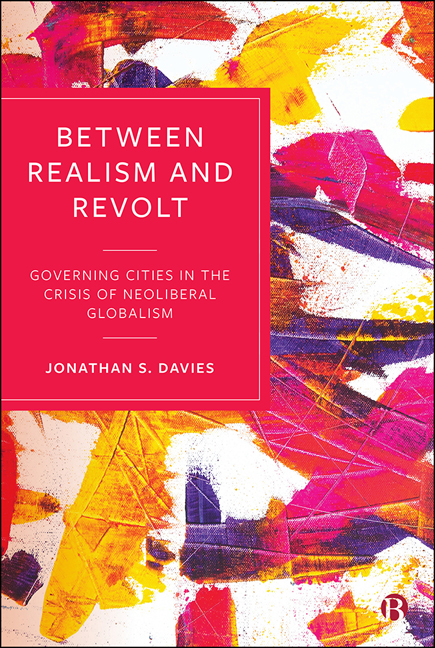Book contents
- Frontmatter
- Dedication
- Contents
- List of Tables
- Contributing Investigators
- Acknowledgements
- Preface
- Introduction
- 1 Studying Urban Political (Dis)Orders
- 2 Dynamics of Crisis, Neoliberalisation and Austerity
- 3 Austerity and State Rescaling
- 4 Consolidating Neoliberal Austerity Regimes
- 5 Regime Divergence and the Limits of Austere Neoliberalism
- 6 Resisting Austerity: Resonant Solidarities and Small Wins
- 7 The ‘Activity of Ruling Groups’: Containment, De-mobilisation and Fragmentation
- 8 Reading the Conjuncture: (Dis)Ordering Dynamics in the Crises of Neoliberal Globalism
- Afterword: Into the Pandemic
- Notes
- References
- Index
2 - Dynamics of Crisis, Neoliberalisation and Austerity
Published online by Cambridge University Press: 05 January 2022
- Frontmatter
- Dedication
- Contents
- List of Tables
- Contributing Investigators
- Acknowledgements
- Preface
- Introduction
- 1 Studying Urban Political (Dis)Orders
- 2 Dynamics of Crisis, Neoliberalisation and Austerity
- 3 Austerity and State Rescaling
- 4 Consolidating Neoliberal Austerity Regimes
- 5 Regime Divergence and the Limits of Austere Neoliberalism
- 6 Resisting Austerity: Resonant Solidarities and Small Wins
- 7 The ‘Activity of Ruling Groups’: Containment, De-mobilisation and Fragmentation
- 8 Reading the Conjuncture: (Dis)Ordering Dynamics in the Crises of Neoliberal Globalism
- Afterword: Into the Pandemic
- Notes
- References
- Index
Summary
Introduction
Theodore (2020: 2) argued that since the GEC, ‘austerity has become the primary means for the further neoliberalisation of inherited arrangements’: neoliberalisation upon earlier waves of neoliberalism. Chapter 2 delves into this proposition. It begins by exploring the impact of the GEC, and its aftermath, in the eight countries and cities studied. It proceeds to examine the interplay of key terms introduced in Chapter 1: crisis, austerity and neoliberalisation. The chapter allocates the cities to three groups: those in which austerity is recognised as a central concept or challenge and a warrant for neoliberalisation (Athens, Dublin and Leicester), those in which it is concealed or re-signified within an otherwise vigorous neoliberalisation agenda (Baltimore and Montréal), and those positioning themselves critically, at a distance or outside it (Barcelona, Dandenong and Nantes). The chapter concludes by discussing theoretical implications of convergence and divergence in the cross-cutting relationships between crisis, austerity and neoliberalisation.
Eight cities in and beyond the global economic crisis
Table 2.1 characterises the eight cities in relation to population, economic performance and political control in the 2015– 18 period. As explained in the Introductory chapter, the statistics are imprecise and drawn from a range of sources, some more up to date than others. Athens is the capital of Greece, and the epicentre of European austerity. Baltimore is at the southern end of the mega-region stretching several hundred miles from Boston to Washington, DC in the USA. Barcelona is the capital of Catalonia and, in terms of size and stature, Spain's second city. Greater Dandenong is a relatively small city within the South Eastern part of the Melbourne metropolis. Melbourne itself is the major city-region in the Australian state of Victoria, comprising over 75 per cent of the state's population. Dublin is Ireland's capital and, like Athens, looms large in the political economy of its host country. Leicester is a medium-sized city in the East Midlands region of England and on some measures the poorest in the UK. Montréal comprises a large metropolitan area in the largely Francophone province of Québec, in the Eastern part of Canada. Nantes is situated near the eastern coast of France in the Pays de la Loire region and is of similar size to Leicester.
- Type
- Chapter
- Information
- Between Realism and RevoltGoverning Cities in the Crisis of Neoliberal Globalism, pp. 47 - 70Publisher: Bristol University PressPrint publication year: 2021

